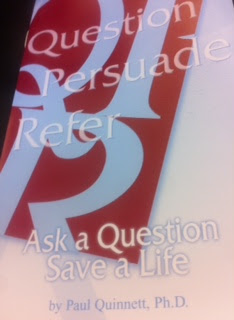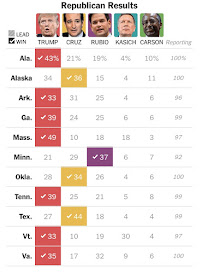Saturday, March 5, 2016
PHL111G
Aristotle
Who were the Greeks
With Michael Scott YouTube
Philosophy
Poetry
Art
War
Sparta
Corinth
Athens
City state alliances
THE POLIS
Feuds & Rivalry
Winning was everything
OLYMPIA MARATHON
all citizens were battle-ready soldiers
Agony
AGON- competition was at
the core of the Greek psyche
The militaristic nature of (G) society
Simple austere frugal - SPARTAN
A ruthless fighting force
Wore red to cover the sight of bleed
The blood broth of the fighter
A tough food for tough men
INFANTICIDE & EUGENICS
There was no word for religion
The gods were so intricately
Woven into society
They were at once
Rational and irrational
THE GOD APOLLO
HEALING - GYMNASIA
Sanctuary of Gods & Doctors
Sacrifice worship and diagnostics
And treatments surgery cures
And offerings to the gods
Cupping glass therapies
THE GREEKS AND SEX
adultery a worse crime than rape
THE BODY FIRST
ABOVE ALL - then the brain
If you live with a lame
Man you will start
To limp
Parties as tests - symposia
Wine but not mindless drinking
for talking
Debate discuss
Idiotes - private
Istrica no advocate u present your own case to the jurors
N TOIS CHRONOI
Slavery a fact of life
400k to 35k
SILVER
Socrates doesn't always
comes to conclusions
The ideal state
Justice - censure dogma
Platos view of
human nature - cynical
PLATOS QUESTIONS
ARISTOTLES ANSWERS
Are humans moral
if no ones looking?
THE RING OF GIGES
Moral responsibility
Democracy now
Sent from my iPhone
Wednesday, March 2, 2016
PSY173T
PSY173XAM
The Domains of Adulthood to Consider
The definition of transition services mentions specific domains of adulthood to be addressed during transition planning. To recap, these are:
- postsecondary education,
- vocational education,
- integrated employment (including supported employment),
- continuing and adult education,
- adult services,
- independent living, or
- community participation.
These are the areas to be explored by the IEP team to determine what types of transition-related support and services a student with a disability needs. It's easy to see how planning ahead in each of these areas, and developing goal statements and corresponding services for the student, can greatly assist that student in preparing for life after high school.
PSY173X
Title I of the Americans with Disabilities Act addresses the rights of individuals with disabilities in employment settings. According to the Americans with Disabilities Act Handbook (U.S. Department of Justice, 1991), the purpose of Title I is to ensure that qualified individuals with disabilities are protected from discrimination on the basis of disability. As long as the individual is qualified for an employment opportunity, s/he cannot be denied that opportunity simply because s/he has a disability, and must therefore be given the same consideration for employment that individuals without disabilities are given. For a more complete discussion of Title I, refer to the ADA and Employment Page on this site.
Title II of the Americans with Disabilities Act addresses the right of access to public services by individuals with disabilities. According to the Americans with Disabilities Act Handbook (U.S. Department of Justice, 1991), the purpose of Title II is to prohibit discrimination on the basis of disability in all services, programs, and activities provided or made available by local or state governments and their affiliate agencies. This is regardless of A) whether they receive federal funding, and B) how many employees they have (i.e., state or government agencies with fewer than 15 employees are required to follow the ADA). Examples of public services covered by the ADA include:
Facilities:
- public bus service
- government meetings
- public schools and universities
- recreation and state parks.
For a more complete discussion of Title II, refer to the ADA and Post-Secondary Education Page on this site.
For information regarding Section 504, Rehabilitation Act of 1973, that parallels the Title II requirements,
use this link. Section 504, Rehabilitation Act of 1973.
Title III: Public Accommodation
This section of the ADA specifies that no individual shall be discriminated against on the basis of disability in the full and equal enjoyment of public accommodations. In the past, only businesses and service agencies receiving federal monies were required to make their facilities accessible to persons with disabilities. Title III, however, mandates the accessibility of all services, even those privately owned, and requires that all new places of public accommodation and commercial facilities be designed and constructed so as to be readily accessible to and usable by persons with disabilities (Americans with Disabilities Act Handbook, 1991). Examples of "public accommodations" include:
- Public gathering places (restaurants, bars, movie theaters, etc.)
- Places of lodging (hotels, motels, inns)
- Retail stores
- Social service centers
In providing goods and services, a public accommodation may not use eligibility requirements that exclude or segregate individuals with disabilities, unless the requirements are "necessary" for the operation of the public accommodation. Title III also requires public accommodations to make reasonable modifications to policies, practices, and procedures, unless those modifications would fundamentally alter the nature of the services provided by the public accommodation. For example, the proprietors of a dimly-lit "romantic" restaurant would not have to increase their lighting to accommodate a person with visual impairment, since doing so would destroy the intended ambience of the business. Here, the use of an "auxiliary aid" (e.g., a policy requiring staff to read the menu to customers needing assistance) would insure that the establishment remains in compliance with Title III of the ADA. In terms of physical accessibility, all new buildings must adhere to the ADA Accessibility Guidelines (ADAAG). Owners of existing public accommodation facilities must remove physical barriers when it is "readily achievable" to do so (i.e., when it can be accomplished easily and without much expense).
Title IV of the ADA amends the Communications Act of 1934 to require that telephone companies provide telecommunication relay services. The relay services must provide speech-impaired or hearing-impaired individuals who use TDD's (Telecommunication Device for the Deaf) or other non-voice terminal devices opportunities for communication that are equivalent to those provided to other customers. Also covered under ADA Title IV are Closed Captioning services; namely, televisions 13 inches or more in size must have closed captioning capabilities.
Title V: Miscellaneous Provisions
As its name implies, this section of the ADA contains supplemental regulations that are not explicitly covered in other parts of the ADA. These topics include (but are not limited to):
- State Immunity: This provision was necessary because in most states, individuals cannot sue state agencies or affiliates unless these entities agree to be "sue-able". By explicitly stating that states cannot claim immunity from ADA-related legal action, the ADA insures that individuals with disabilities maintain their right to sue any state agency in violation of ADA provisions. Under the Alabama vs. Garrett decision, it was held that a state employee cannot sue the state for damages. An individual can sue the state to make that state comply with the ADA but no damages will be awarded. However, the federal government can sue the state and financial penalties can be assessed.
- Retaliation: This provision protects individuals with disabilities who successfully sue a company, government agency, or other entity subject to ADA regulation. They are prohibited from threatening, intimidating, coercing, or harassing anyone involved in a successful lawsuit, including those who may have testified on the disabled individual's behalf.
- Attorney's Fees: In addition to damages, individuals with disabilities, under the discretion of the judge, can have their attorney's fees awarded as part of the settlement of a successful lawsuit under the ADA.
- Coverage of Congress: Until recently, Congress invoked the right of adhering to Section 504 (1973 Rehabilitation Act) guidelines rather than adopt the new ADA guidelines. Presently, only the Executive Branch of the federal government uses the 1973 law; both the Judicial and Legislative branches of the federal government are covered by the ADA.
- Other Federal & State Laws: Any other state or federal laws addressing individuals with disabilities can be used under the umbrella of the ADA. This way, if a federal or state law is developed that is stronger than the provisions outlined in the ADA, these new, stricter regulations can be incorporated into the existing ADA legislation to provide the maximum protection for individuals with disabilities.
HSE251S
1-800-273-TALK
"Ask a question, save a life"
HOPE BEGINS WITH YOU !
http://bit.ly/1Qsj9G2
THE LAST TABOO - we are
now willing to talk about it . . .
http://bit.ly/1SiPYXa
Connecticut Has One of Nation's Highest Suicide Rates - http://bit.ly/1SiPiRr
Suicide prevention is an umbrella term for the collective efforts of local citizen organizations, mental health practitioners and related professionals to reduce the incidence of suicide. - Wikipedia
The bridge story - a movie
STUDYING PERSONS
WHO JUMPED
AND LIVED
Meet the people that are dedicated to suicide prevention and to
teaching others the skills that can save lives. - http://bit.ly/1RoX3jW
Question
Persuade
Refer
Suicide Prevention Resource
http://www.sprc.org
AMBIVALENCE
INTERVENTION
Paul Quinnett • A temporary mental
health issue - a 'permanent' solution?
Decreasing the risk
Preventable - depression
is treatable
Brittany Mainard
Assisted suicide
Elderly more vulnerable ?
Protective factors
Risk factors
CREATING A SAFETY NET
offering hope through
POSITIVE ACTION
MYTHS & FACTS
http://bit.ly/1SiRzfs
Situational clues
Indicators
How you ask the question
Is less important than
that you ask it
If you cannot ask the
question find someone who can
THE INFOLINE 211
P - persuade
R - refer
ISSUES:
Burial traditions/taboos
Cowardice
• AFTER THE CRISIS
• PLANTING SEEDS OF HOPE
• Physician Assisted Suicide
Sent from my iPhone
POL112H
Rankings of the states
Agricultural south
No Jim Crowe laws
State laws that segregate
Separate but equal
Mexican border states - Hispanics
Southern Ag states - Blacks
Hawaian - Asians
Natives - Ok, Alk
Women - 24% Co & Vt 40%
Over 50% pop is female
Top ten states
Bottom ten states - social conservative
Size of the state matters
Women will focus on
Education
Health
Civil rights
Welfare
Women - more collaborative
Men - more competitive
Incarceration - rehab VS punitive
ROWLAND
Manipulating people's resentment
Who gets into politics?
Gregarious
Extroverted
Give back
Have fun
Make money
1/3 never held office
PARTY STRUCTURE
weak vs strong
Weak = easy for career
Strong = record of working to run
FUNDING
Maryann Hanley - $100,000
Bumper stickers & Buttons, Mailers
Money brings obligation
TESLA CARS
Spacex
Solar City
Town council, mayor
CT 1 of 3 states Az / Maine
Citizens Election Program
http://1.usa.gov/1TnTiSb
PRIMARIES
GENERAL
ELECTIONS
Florida most corrupt !!
Sent from my iPhone
Monday, February 29, 2016
PSY173D
504 -1973 acces
https://quizlet.com/100468929/the-americans-with-disabilities-act-ada-flash-cards/
TRANSITIONING
TO ADULTHOOD
Challenges to PWD
1. Aging out of svcs
2. Finding accommodations
3. Resources structures etc
4. The world seems confusing
PWD EXPERIENCE
Half grad rates
Higher dropout
Lower college entrance &completion
Lower employment rates
Higher dependency on public assis
Higher poverty rates
Lower life satisfaction rates
PROFESSORS ARE NOT
TRAINED TEACHERS
http://bit.ly/1OvtHP3
Rubrics
Developmental Goals
Creativity / Critical thinking
Independent thinkers
IDEA - 2004
No transition planning
Bail Fund vs College Fund
FORCED COMPLIANCE
U N I F O R M N I T Y
Enrollment Services
Highest transfer rate
Highest completion rate
Private vs Public
Two sources - tuition & public funds
Transition planning domains
Sent from my iPhone











